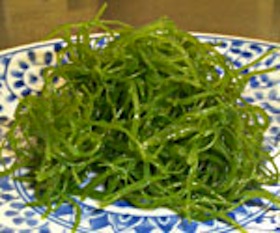The Las Cruces Sun-News reports that a rule change will go into effect today that requires those who sell home-based food products to have a permit issued by the New Mexico Environment Department.
That permit will allow the sale of certain foods that can be prepared in home-based food processing operations within state jurisdiction. Those foods include yeast and quick breads, cookies, cakes, .jpg) tortillas, high-sugar pies and pastries, high-sugar jam and jellies, dry mixes (made from commercial ingredients), candy and fudge. Those foods do not support the rapid and progressive growth of infectious and toxicogenic microorganisms, including Clostridium botulinium, responsible for foodborne disease.
tortillas, high-sugar pies and pastries, high-sugar jam and jellies, dry mixes (made from commercial ingredients), candy and fudge. Those foods do not support the rapid and progressive growth of infectious and toxicogenic microorganisms, including Clostridium botulinium, responsible for foodborne disease.
The food permit costs $100 a year. To obtain a permit to operate, a seller can submit an application to a local NMED field office. The application package is available at www.nmenv.state.nm.us/fod/Food_Program or at your local NMED field office.
As Ben and Brae wrote in the Wisconsin State Journal back in March, 2006, leave the umpires in the field — the health inspectors who make sure everybody plays by the rules. In this game we need to get along so it doesn’t leave a nasty and sometimes lethal taste in the mouths of players or spectators.

 coming microbiologists in the crowd who have spent hours autoclaving, ogo is a source of the thickener agar.
coming microbiologists in the crowd who have spent hours autoclaving, ogo is a source of the thickener agar. Some students groups are upset after the University of Nebraska at Omaha banned the sale of homemade baked goods on campus.
Some students groups are upset after the University of Nebraska at Omaha banned the sale of homemade baked goods on campus.